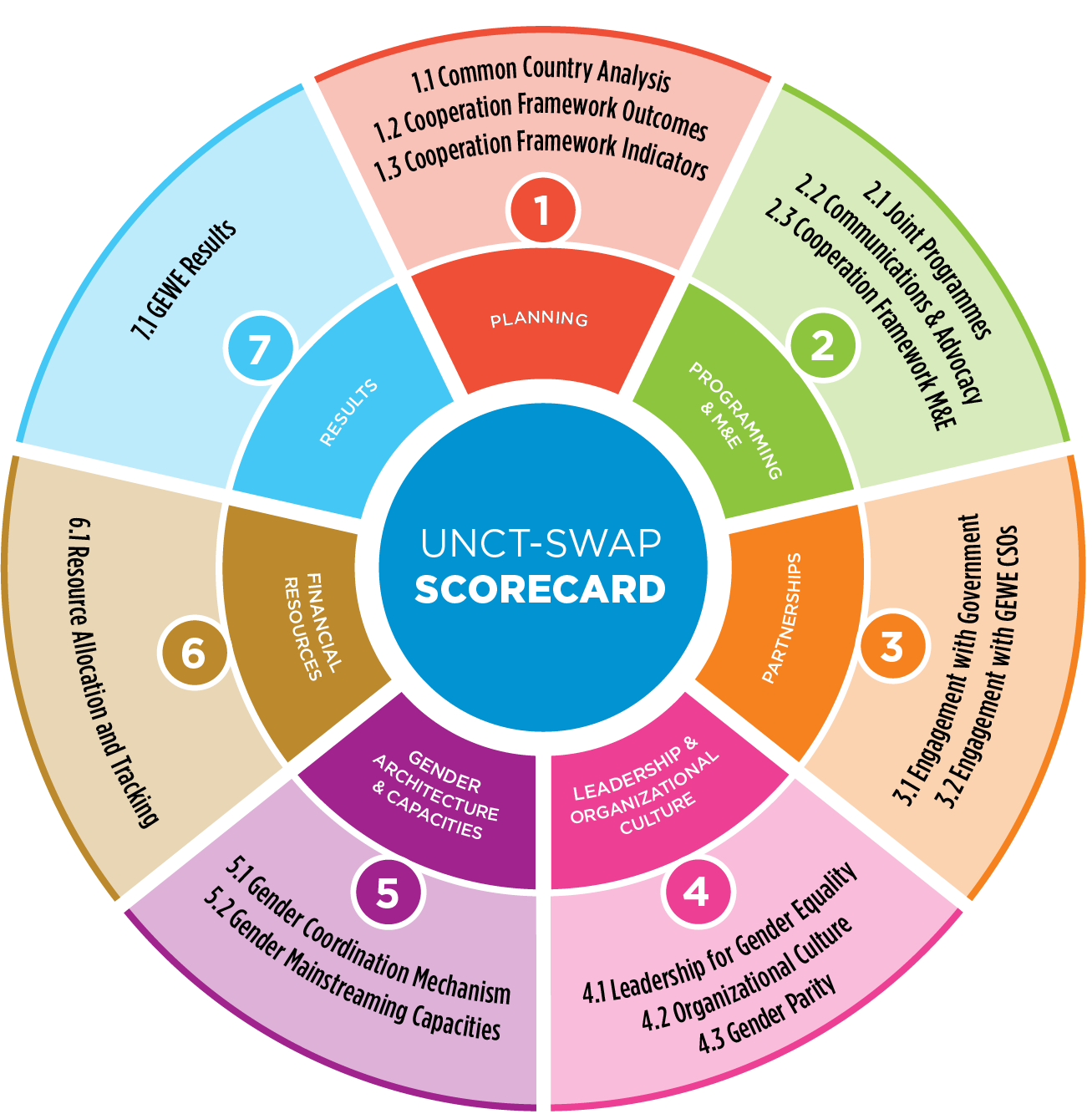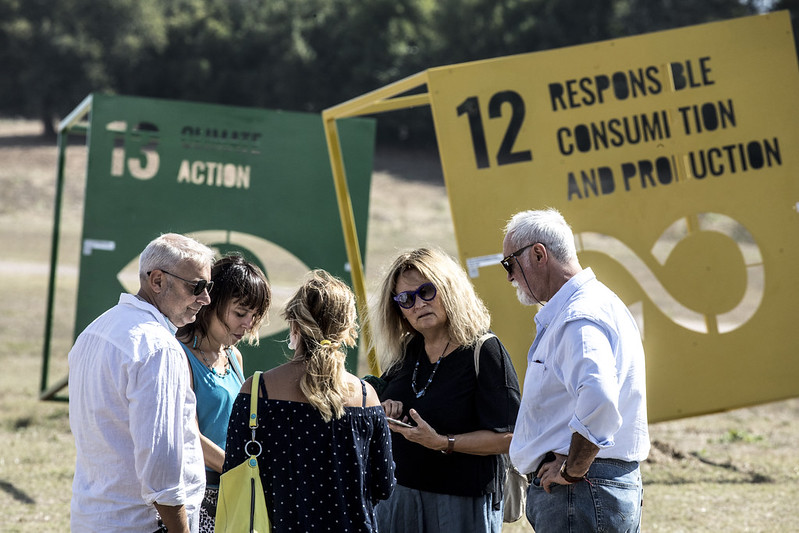Gender equality is essential to achieve FAO’s mandate of a world free from hunger, malnutrition and poverty.
FAO recognizes that persisting inequalities between women and men are a major obstacle to agriculture and rural development and that eliminating these disparities is essential to building sustainable and inclusive food systems and resilient and peaceful societies.
by Tacko Ndiaye, Senior Gender Officer FAO and Johanna Schmidt, Gender Specialist FAO
FAO's commitment to promote gender equality stems from the intergovernmental mandate of the UN to promote and protect women’s rights as fundamental human rights, as recognized by the 1948 Universal Declaration of Human Rights and the 1979 Convention on the Elimination of All Forms of Discrimination against Women (CEDAW).
In this interview, you will find some reflections from Tacko Ndiaye, Senior Gender Officer, and Johanna Schmidt, Gender Specialist, on how FAO cohesively champions gender equality and women's empowerment from the headquarter to the field levels.
To what extent is the gender unit overseeing the work of FAO field offices? If you have that role, how is it operationalized?
First, FAO’s Policy on Gender Equality 2020-2030, provides the Organization with a corporate framework to orient its technical and normative work towards gender equality objectives, relevant to FAO’s mandate. To support the implementation of the policy, and meet the requirements of the UN-SWAP 2.0, FAO has put in place a solid gender architecture to ensure consistent and coherent delivery of gender work across the Organization.
FAO’s gender architecture includes the HQ Gender Team in the Inclusive Rural Transformation and Gender Equality Division, the Regional Gender Officers based in FAO’s Regional Offices; and the gender focal points in FAO headquarters divisions and in the decentralized offices (subregional and country offices).
The HQ Gender team, coordinates and supports the gender focal point network by creating tools and guidelines, and by facilitating networking between the gender focal points at FAO headquarters, and in FAO’s five Regional Offices. There are Gender Experts in each of FAO’s Regional Offices (Africa, Near East and North Africa, Latin America and Caribbean, Europe and Central Asia, Asia and the Pacific). The Regional Gender Experts in collaboration with appointed counterparts from the HQ Gender team, support and strengthening the gender focal point network in the regions through mentoring and assist them in their role as GFPs.
Dedicated funds have been allocated as ring fenced budget to support the gender work across the Organization, including the GFP-network. Specific funds have also been dedicated to the Technical Network on Gender (TNG), which is coordinated by the HQ Gender Team. The objective of the TNG is to enhance disciplinary competences through knowledge sharing, discussions and other outreach activities. The TNG produces a monthly newsletter known as the FAO Gender News, facilitates information flow and sharing of technical resources, and organizes technical seminars and webinars.
What are your concerns and plans for strengthening FAO participation in efforts to mainstream a gender perspective in common processes at country team level (e.g., Common Country Analysis (CCA), Cooperation Framework (UNSDCF), Joint Programmes with a focus on gender equality, gender equality marker)?
From FAO’s perspective it would be important to strengthen the participation and roles of FAO colleagues in country team processes such as GTG/GTRG meetings to influence these processes. As time and resources are often scarce at country level with competing demands, it would be important to make sure that these colleagues are equipped with the mandate and resources needed to fulfil an impactful and active role in these processes. For example, FAO Country Gender Assessments are often used as a resource to inform CCAs.
How is FAO HQ supporting the UNCT-SWAP Scorecard?
To understand better to what extend our country offices are involved in the Scorecard exercise, FAO has introduced a question about the Scorecard in our annual reporting mechanism at country level (called the Country Annual Report). FAO also carried out a specific assessment in 2020, to understand what indicators were mainly reported on, the level of engagement, but also to identify barriers for engagement and lessons learned. The assessment showed that there was a relatively low level of knowledge about the Scorecard exercise and its objectives, and that the level of engagement could be increased.
To address this, FAO has developed a guide to country office colleagues including the rationale of the UNCT -SWAP Scorecard and the standard process of the assessment and entry points for reporting and engagement.
FAO in collaboration with UN WOMEN is holding a meeting on November 8, 2023 to increase knowledge among gender focal points and relevant staff (e.g. working on communication and Human Resources) on the Scorecard, its requirements and entry points for reporting. The aim of the meeting is also to provide a platform for discussion and knowledge sharing.
What advice would you provide to UN entities with field offices to promote stronger accountability on gender equality at the country team level?
As a first step it would be important to understand the needs and potential barriers faced by field colleagues. Is it resources, is it lack of time, or is it lack of knowledge? Based on that and in collaboration with field colleagues a more long-term plan could be established.
What linkages would you like to see between FAO UN-SWAP report and FAO efforts at the country team level? Would you recommend including some indicators in the UN-SWAP framework to measure the entity level participation for gender mainstreaming effort and results in the field?
There is definitely an opportunity to strengthen the linkages between the UN-SWAP framework and our field work, including the Scorecard reporting. In fact, I believe many of our Business Owners at HQ consider system-wide approaches on GEWE into their planning, oversight, and reporting at the field level in collaboration with our decentralized offices. First, it would be important to take stock of those ongoing efforts. In addition, we need to recognize that the level of engagement is not only dependent on capacities from each entity country office, but also depends on the capacities of the country teams. Here again, we need to carefully assess the different capacities of the country teams before setting any indicators in the UN-SWAP framework. Is it enough for each entity country office to participate in the survey of the Scorecard reporting or join the country assessment team of the Scorecard? Are we further aiming for improved coherence and joint work at country team by modifying the UN-SWAP framework?
As a starting port, a first step could be to increase knowledge about the Scorecard as an accountability framework for advancing gender equality and women’s empowerment, and entities could also do an internal assessment similar to what FAO did to understand bottlenecks for reporting and entry points for reporting.
How can UN Women, DCO, other entities and existing networks help to better integrate the HQ and field perspectives?
Start with facilitating opportunities for meetings and collaboration, this could be through webinars, communities of practices with a mix of global and field perspectives. Acknowledging successful field level work in HQ-based fora and inviting colleagues from the field to share their experience and expertise! FAO has recently launched an interview series with GFPs, that aims to give visibility and recognition to the work GFPs are doing to mainstream gender, and their role as a gender focal point, among other issues. The initiative also provides an opportunity to share some insights and successes with colleagues, both at HQ and in the regions.

